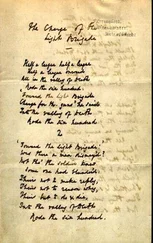Andrew Lang - Alfred Tennyson
Здесь есть возможность читать онлайн «Andrew Lang - Alfred Tennyson» — ознакомительный отрывок электронной книги совершенно бесплатно, а после прочтения отрывка купить полную версию. В некоторых случаях можно слушать аудио, скачать через торрент в формате fb2 и присутствует краткое содержание. Жанр: foreign_antique, foreign_prose, на английском языке. Описание произведения, (предисловие) а так же отзывы посетителей доступны на портале библиотеки ЛибКат.
- Название:Alfred Tennyson
- Автор:
- Жанр:
- Год:неизвестен
- ISBN:нет данных
- Рейтинг книги:5 / 5. Голосов: 1
-
Избранное:Добавить в избранное
- Отзывы:
-
Ваша оценка:
- 100
- 1
- 2
- 3
- 4
- 5
Alfred Tennyson: краткое содержание, описание и аннотация
Предлагаем к чтению аннотацию, описание, краткое содержание или предисловие (зависит от того, что написал сам автор книги «Alfred Tennyson»). Если вы не нашли необходимую информацию о книге — напишите в комментариях, мы постараемся отыскать её.
Alfred Tennyson — читать онлайн ознакомительный отрывок
Ниже представлен текст книги, разбитый по страницам. Система сохранения места последней прочитанной страницы, позволяет с удобством читать онлайн бесплатно книгу «Alfred Tennyson», без необходимости каждый раз заново искать на чём Вы остановились. Поставьте закладку, и сможете в любой момент перейти на страницу, на которой закончили чтение.
Интервал:
Закладка:
In so marvellous a treasure of precious things as the volumes of 1842, perhaps none is more splendid, perfect, and perdurable than the Morte d’Arthur . It had been written seven years earlier, and pronounced by the poet “not bad.” Tennyson was never, perhaps, a very deep Arthurian student. A little cheap copy of Malory was his companion. 4 4 The writer knew this edition before he knew Tennyson’s poems.
He does not appear to have gone deeply into the French and German “literature of the subject.” Malory’s compilation (1485) from French and English sources, with the Mabinogion of Lady Charlotte Guest, sufficed for him as materials. The whole poem, enshrined in the memory of all lovers of verse, is richly studded, as the hilt of Excalibur, with classical memories. “A faint Homeric echo” it is not, nor a Virgilian echo, but the absolute voice of old romance, a thing that might have been chanted by
“The lonely maiden of the Lake”
when
“Nine years she wrought it, sitting in the deeps,
Upon the hidden bases of the hills.”
Perhaps the most exquisite adaptation of all are the lines from the Odyssey —
“Where falls not hail nor rain, nor any snow.”
“Softly through the flutes of the Grecians” came first these Elysian numbers, then through Lucretius, then through Tennyson’s own Lucretius , then in Mr Swinburne’s Atalanta in Calydon : —
“Lands indiscoverable in the unheard-of west
Round which the strong stream of a sacred sea
Rolls without wind for ever, and the snow
There shows not her white wings and windy feet,
Nor thunder nor swift rain saith anything,
Nor the sun burns, but all things rest and thrive.”
So fortunate in their transmission through poets have been the lines of “the Ionian father of the rest,” the greatest of them all.
In the variety of excellences which marks Tennyson, the new English idylls of 1842 hold their prominent place. Nothing can be more exquisite and more English than the picture of “the garden that I love.” Theocritus cannot be surpassed; but the idyll matches to the seventh of his, where it is most closely followed, and possesses such a picture of a girl as the Sicilian never tried to paint.
Dora is another idyll, resembling the work of a Wordsworth in a clime softer than that of the Fells. The lays of Edwin Morris and Edward Bull are not among the more enduring of even the playful poems. The St Simeon Stylites appears “made to the hand” of the author of Men and Women rather than of Tennyson. The grotesque vanity of the anchorite is so remote from us, that we can scarcely judge of the truth of the picture, though the East has still her parallels to St Simeon. From the almost, perhaps quite, incredible ascetic the poet lightly turns to “society verse” lifted up into the air of poetry, in the charm of The Talking Oak , and the happy flitting sketches of actual history; and thence to the strength and passion of Love and Duty . Shall
“Sin itself be found
The cloudy porch oft opening on the Sun?”
That this is the province of sin is a pretty popular modern moral. But Honour is the better part, and here was a poet who had the courage to say so; though, to be sure, the words ring strange in an age when highly respectable matrons assure us that “passion,” like charity, covers a multitude of sins. Love and Duty , we must admit, is “early Victorian.”
The Ulysses is almost a rival to the Morte d’Arthur . It is of an early date, after Arthur Hallam’s death, and Thackeray speaks of the poet chanting his
“Great Achilles whom we knew,”
as if he thought that this was in Cambridge days. But it is later than these. Tennyson said, “ Ulysses was written soon after Arthur Hallam’s death, and gave my feeling about the need of going forward, and braving the struggle of life, perhaps more simply than anything in In Memoriam .” Assuredly the expression is more simple, and more noble, and the personal emotion more dignified for the classic veil. When the plaintive Pessimist (“‘proud of the title,’ as the Living Skeleton said when they showed him”) tells us that “not to have been born is best,” we may answer with Ulysses —
“Life piled on life
Were all too little.”
The Ulysses of Tennyson, of course, is Dante’s Ulysses, not Homer’s Odysseus, who brought home to Ithaca not one of his mariners. His last known adventure, the journey to the land of men who knew not the savour of salt, Odysseus was to make on foot and alone; so spake the ghost of Tiresias within the poplar pale of Persephone.
The Two Voices expresses the contest of doubts and griefs with the spirit of endurance and joy which speaks alone in Ulysses . The man who is unhappy, but does not want to put an end to himself, has certainly the better of the argument with the despairing Voice. The arguments of “that barren Voice” are, indeed, remarkably deficient in cogency and logic, if we can bring ourselves to strip the discussion of its poetry. The original title, Thoughts of a Suicide , was inappropriate. The suicidal suggestions are promptly faced and confuted, and the mood of the author is throughout that of one who thinks life worth living: —
“Whatever crazy sorrow saith,
No life that breathes with human breath
Has ever truly long’d for death.
’Tis life whereof our nerves are scant,
Oh life, not death, for which we pant;
More life, and fuller, that I want.”
This appears to be a satisfactory reply to the persons who eke out a livelihood by publishing pessimistic books, and hooting, as the great Alexandre Dumas says, at the great drama of Life.
With The Day-Dream (of The Sleeping Beauty) Tennyson again displays his matchless range of powers. Verse of Society rises into a charmed and musical fantasy, passing from the Berlin-wool work of the period
(“Take the broidery frame, and add
A crimson to the quaint Macaw”)
into the enchanted land of the fable: princes immortal, princesses eternally young and fair. The St Agnes and Sir Galahad , companion pieces, contain the romance, as St Simeon Stylites shows the repulsive side of asceticism; for the saint and the knight are young, beautiful, and eager as St Theresa in her childhood. It has been said, I do not know on what authority, that the poet had no recollection of composing Sir Galahad , any more than Scott remembered composing The Bride of Lammermoor , or Thackeray parts of Pendennis . The haunting of Tennyson’s mind by the Arthurian legends prompted also the lovely fragment on the Queen’s last Maying, Sir Launcelot and Queen Guinevere , a thing of perfect charm and music. The ballads of Lady Clare and The Lord of Burleigh are not examples of the poet in his strength; for his power and fantasy we must turn to The Vision of Sin , where the early passages have the languid voluptuous music of The Lotos-Eaters , with the ethical element superadded, while the portion beginning —
“Wrinkled ostler, grim and thin!”
is in parts reminiscent of Burns’s Jolly Beggars . In Break , Break , Break , we hear a note prelusive to In Memoriam , much of which was already composed.
The Poems of 1842 are always vocal in the memories of all readers of English verse. None are more familiar, at least to men of the generations which immediately followed Tennyson’s. FitzGerald was apt to think that the poet never again attained the same level, and I venture to suppose that he never rose above it. For FitzGerald’s opinion, right or wrong, it is easy to account. He had seen all the pieces in manuscript; they were his cherished possession before the world knew them. C’est mon homme , he might have said of Tennyson, as Boileau said of Molière. Before the public awoke FitzGerald had “discovered Tennyson,” and that at the age most open to poetry and most enthusiastic in friendship. Again, the Poems of 1842 were short , while The Princess , Maud , and The Idylls of the King were relatively long, and, with In Memoriam , possessed unity of subject. They lacked the rich, the unexampled variety of topic, treatment, and theme which marks the Poems of 1842. These were all reasons why FitzGerald should think that the two slim green volumes held the poet’s work at its highest level. Perhaps he was not wrong, after all.
Читать дальшеИнтервал:
Закладка:
Похожие книги на «Alfred Tennyson»
Представляем Вашему вниманию похожие книги на «Alfred Tennyson» списком для выбора. Мы отобрали схожую по названию и смыслу литературу в надежде предоставить читателям больше вариантов отыскать новые, интересные, ещё непрочитанные произведения.
Обсуждение, отзывы о книге «Alfred Tennyson» и просто собственные мнения читателей. Оставьте ваши комментарии, напишите, что Вы думаете о произведении, его смысле или главных героях. Укажите что конкретно понравилось, а что нет, и почему Вы так считаете.












